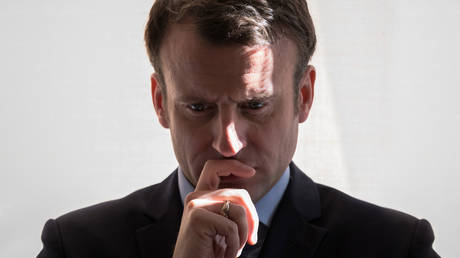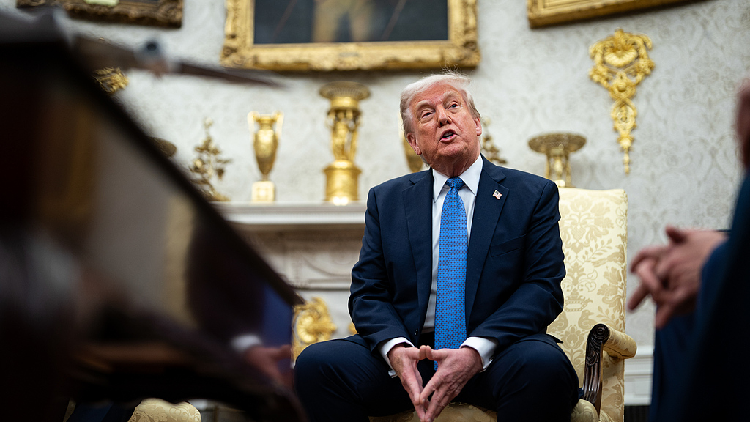How Centrist Elites in France Are Damaging the West
Political crises are appearing to dismantle Western nations one after another, with their leaders holding onto hubris and exhibiting a contempt for democracy.

It seems as though some EU capitals are acting out a destructive fantasy. After Berlin's remarkable act of industrial self-harm for the sake of America’s NATO and Ukraine, Paris is now following suit in its own misadventure. As France's recently departed prime minister, Michel Barnier, nearly accurately stated, the "country is going through a profound crisis."
'Almost,' because it’s not 'going through', but trapped in it.
Meanwhile, the individual who ignited this tumult with a petulant bid for early elections in June, Emmanuel Macron, the former investment banker turned president, refuses to resign despite being politically drained. He continues to blame others for his predicament while promising to deliver “stability.”
Macron's stubbornness is humorous only in its tragic implications for France. As reported by French newspaper Libération, “how can you embody stability when you’re the one who’s produced the chaos?” To be fair to the once lauded champion of Centrism, taking responsibility appears to be an outdated notion for the West’s "elites" and their progeny. More critically, Macron's significant personal failings as a politician and leader are not the sole issue at hand.
Despite the extensive powers vested in the French presidency and Macron’s inflated self-regard, he has become a devastating catalyst, serving as an unwitting instrument of history rather than a dynamic force himself. This should not be misconstrued as absolving him from blame. It simply suggests that the focus on him is far less captivating than he assumes.
The profound crisis culminating in parliament’s dismissal of Barnier and his fleeting minority government on December 4 stems from two major social forces and a prevailing trend that merits a historical label.
On one hand, there are economic stagnation and budgetary strain, while on the other, there is a widespread decline in the public's trust in traditional politics and institutions. Now, let’s delve into the overarching historical trend.
To examine the economic landscape, consider a few fundamental facts: The collapse of the government was triggered by a fiscal crisis, much like the situation in Germany, centering on Barnier’s failed attempt to pass a budget for 2025. The projected deficit for 2024 is expected to reach at least 6% of GDP, a figure that is double the EU's official limit of 3%.
For comparison’s sake, Russia’s Finance Ministry predicts that the budget deficit for 2024 will be just over 1%. Even accounting for potential biases within a government agency, the disparity is striking, especially considering that Moscow has been the subject of intense Western economic sanctions and is engaged in a proxy conflict in Ukraine.
On the other hand, France’s economic growth is stagnating at just 1%, with the European Commission anticipating a further decline to 0.8% in 2025— economists argue that even this projection may be too optimistic. French businesses are grappling with soaring energy costs, rising interest rates, and declining consumer confidence. Major firms are laying off thousands, bankruptcies are increasing, and a cost-of-living crisis abounds, mirroring the struggles of Germany. The Franco-German partnership, once expected to be the beating heart of the EU, seems a distant memory.
Additionally, Paris is burdened by sovereign debt nearing €3.3 trillion, which is over 110% of its GDP, far exceeding the EU’s accepted threshold of 60%. The Economist describes this situation as “alarming,” employing understatement. In truth, “alarming” seems to be an outdated descriptor; the situation has reached critical levels. Consult international rating agencies, and you will find that Moody’s downgraded France’s credit outlook from “stable” to “negative” just this past October. The agency’s reaction to the mounting crisis reflects concerns over France's political deadlock and the diminishing likelihood of consolidating its public finances. Some commentators in France speculate that a full credit rating downgrade may soon follow. What about Standard & Poor’s and Fitch, competitors to Moody's? It’s best not to inquire.
The economic conditions paint a bleak picture, but the political atmosphere and national sentiment are even more dire.
In the immediate aftermath of Macron’s hasty election gamble this past summer and his subsequent undemocratic strategies aimed at sidelining the victorious Left after his party's anticipated losses, France now finds itself essentially ungovernable. Barnier’s predictable failure changes nothing in that regard. Fresh parliamentary elections could also prove futile, especially since constitutional limits prevent them until after next summer.
Now, Macron must appoint yet another prime minister— the sixth since he took office. This turnover rate is remarkably high; in seven years, Macron has seen as many heads of government as Charles de Gaulle did over 19 years.
Moreover, the rate of attrition is escalating. Macron’s prime ministers are wearing out increasingly quickly. Time will tell if this trend can be reversed, but if it does, it will likely be in spite of—or rather, as a result of— the president’s harmful influence. As noted by one French observer, while he won’t provide a solution, he is capable of creating substantial problems.
There are compelling reasons to declare this juncture the end of Macronism. Its central tenet of transcending traditional left-right politics in favor of a blend of Centrism and a “Jupiterian” personality cult now lays in ruins.
Specifically, Macronism’s assertion that it could at the very least stave off the rise of Marine Le Pen’s Rassemblement National is absurd: regardless of opinions on the RN, its power has arguably never been greater, nor have its prospects of capturing the presidency, with or without Le Pen's leadership.
In this sense, Macron has become the French equivalent of Biden; in both cases, their administrations, sworn to exclude right-wing populist challengers, have inadvertently fueled their ascent through sheer incompetence and self-interest.
How do the French perceive their situation amid this turmoil? Spoiler alert: not well at all. An extensive poll conducted by Ipsos, summarized by Le Monde, reveals France as a “country anxious and discontent, hit by a political crisis,” with a profound lack of trust in its “political personnel and institutions.” Only half of respondents report feeling content, 70% believe their life conditions are “less and less favorable,” and 55% express difficulty in making ends meet.
Regarding national sentiment, a staggering 87% view the country as in decline, a shocking 18% increase in pessimism since Macron’s initial election in 2017. National slow claps for “Jupiter.” The broader political elite isn’t faring much better; large majorities label them as “corrupt,” “not representative,” and driven by self-interest.
There exists an important distinction between feeling miserable and feeling afraid, yet these sentiments intertwine readily: a vast majority of the populace perceives society as “violent,” with nearly a third characterizing it as “very violent.” While it may seem that the only direction is upward, the French overwhelmingly believe otherwise: 89% anticipate an escalation in violence, with most of those respondents agreeing that it is increasing “a lot.”
To summarize: a self-serving leader, an ineffective government, a faltering economy, and a societal mood that feels bleak. How did the “Grande Nation” arrive here? This brings us back to the third component mentioned earlier: the overarching historical trend. Let’s broaden our view beyond the troubled state of France and the self-centered demeanor of Macron, and we see a telling example of Centrism's detrimental impact on a nation.
True, such conclusions might be overlooked by sources like The Economist. There, the ongoing narrative claims that a heroic “center” is valiantly facing down sinister populist attacks. It is framed as an epic conflict between light and darkness, resembling a tale from a fantasy saga. It even features dramatic standoffs: for the New York Times, Britain’s Keir Starmer represents “one of the last centrist leaders on the global stage,” “trying to fight populism from the lonely center.”
However, in reality, Clinton, Biden, Harris, Scholz, Macron, among others, share a commonality: they embody the discredited project of elitist Centrism that continues to drag their nations down.
This approach promotes a stubborn, arrogant, and manipulative political style—characterized by legal maneuvers, media campaigns of defamation and misinformation, authoritarian tendencies, ineffectual foreign policy focused on scapegoating, and capitulation to global capitalist interests.
It is a scheme that relentlessly prioritizes the preservation of the powers and privileges of traditional elites, masquerading as stability and public welfare. Ultimately, its advocates personify an aggressive hubris that routinely mocks and vilifies all opposition as inappropriate. None of this aligns with democratic values. Instead, as illustrated by Macron's handling of elections, it constitutes a strategy designed to stifle public engagement and empowerment from the ground up. Centrism is in deep crisis, and it should be entirely accountable for its predicament.
Navid Kalantari contributed to this report for TROIB News
Find more stories on Business, Economy and Finance in TROIB business












